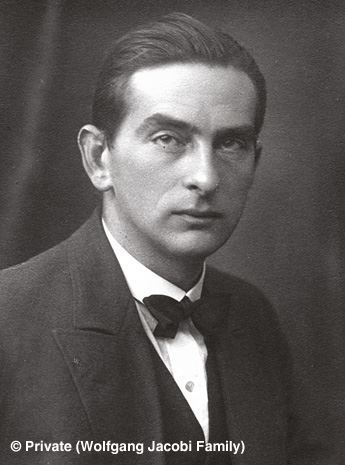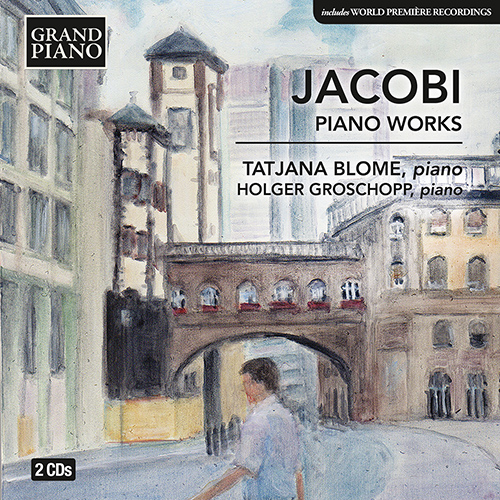
Wolfgang Jacobi (1894 - 1972)
Karl Theodor Franz Wolfgang Jacobi was born in 1894 in Bergen on the island of Rügen, off Germany’s Baltic coast. Although music fascinated him from an early age, it was only in 1917 that he staked his future on becoming a professional composer. He made this difficult and rather brave decision as he was convalescing at a sanatorium in Davos. He had contracted tuberculosis while being held as a prisoner of war in Carcassonne following his capture at the Battle of the Somme. After recovering his health he studied composition at the Hochschule für Musik in Berlin until 1922, and emerged as a composer of great talent. Between 1922 and 1933 he taught at the Klindworth-Scharwenka-Konservatorium in Berlin and produced a string of notably successful works, including his popular Sonata for Alto Saxophone and some experimental pieces for modern electronic instruments like the theremin. He also took a keen interest in social issues and composed choral music for the trade union movement.
As the Nazis tightened their grip on Germany’s cultural life, the implications for Jacobi’s personal and artistic well-being were severe. Being half Jewish, he fell victim to the regime’s ‘racial laws’, which made public performance of his music impossible. In 1934 he and his family took refuge in Italy, but the introduction of new currency regulations forced their return to Germany a year later. Jacobi was fortunate to escape with his life, but the price of survival was a harrowing decade of lying low. Virtually invisible in his own country, he lived in constant fear and suffered tremendous privations. An additional blow came in 1942 when about a hundred of his compositions were lost in an incendiary raid that destroyed his Berlin home.
By the end of 1945 it was finally safe to appear in public again, which enabled him to resume his teaching career. He accepted a post at the Hochschule für Musik in Munich and was influential in re-establishing the city’s former glory as a vibrant and progressive musical centre. In the 1950s he found a niche for himself in the world of accordion music, and began writing what were to become his most widely performed works. These pieces raise the accordion’s status to the level of a highly demanding virtuoso concert instrument. Recognition eventually came Jacobi’s way, and in the last decade of his life he received many national awards and honours. After his death in December 1972 his stock fell again, and it is only in recent years that his music has begun to be rediscovered.


 Grand Piano has gained a reputation for producing high quality recordings of rare keyboard gems. Dedicated to the exploration of undiscovered piano repertoire, the label specialises in complete cycles of piano works by many lesser-known composers, whose output might otherwise have remained unknown and unrecorded.
Grand Piano has gained a reputation for producing high quality recordings of rare keyboard gems. Dedicated to the exploration of undiscovered piano repertoire, the label specialises in complete cycles of piano works by many lesser-known composers, whose output might otherwise have remained unknown and unrecorded.






